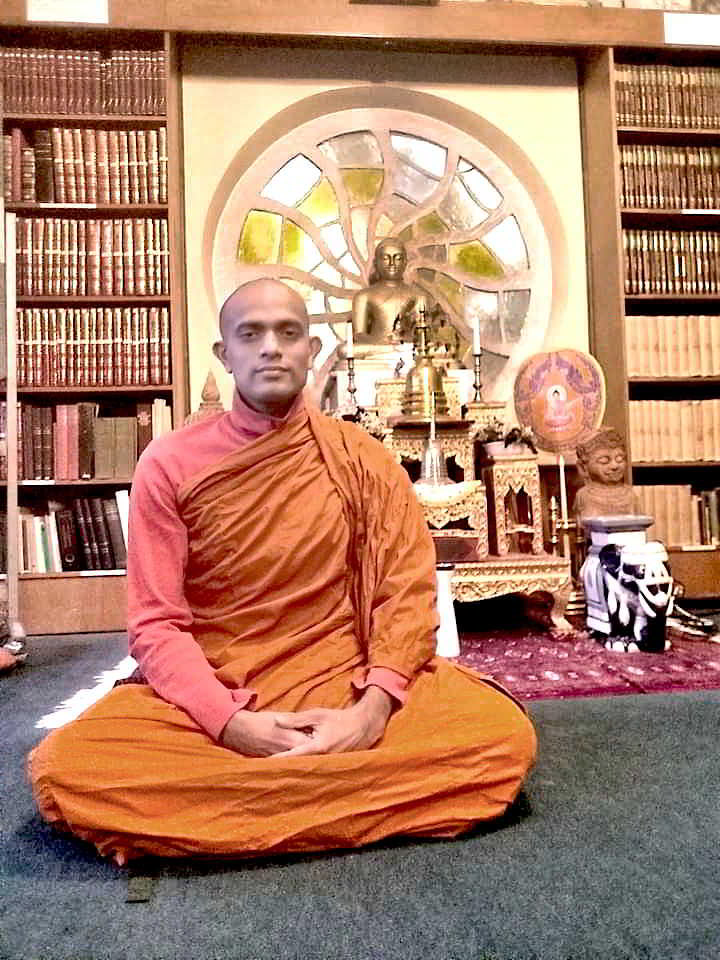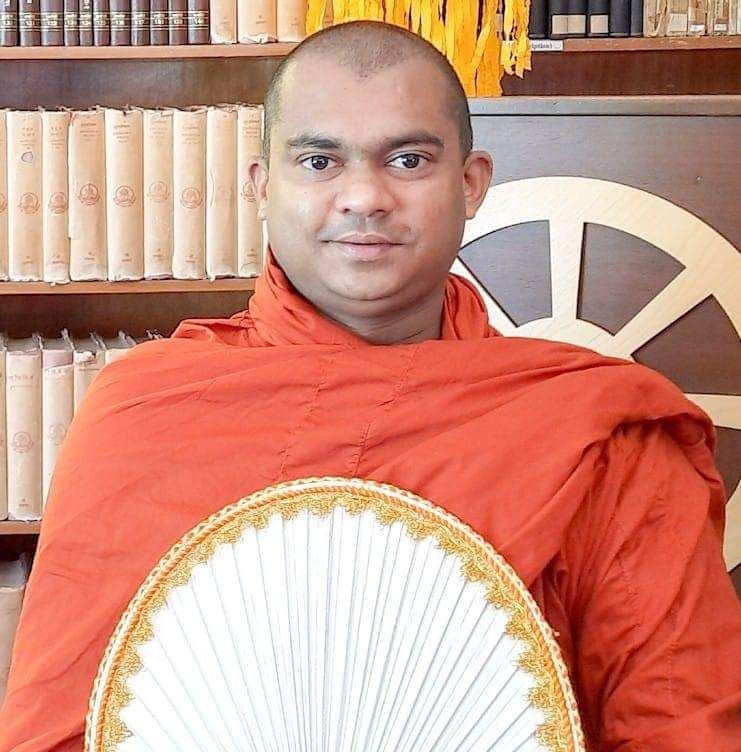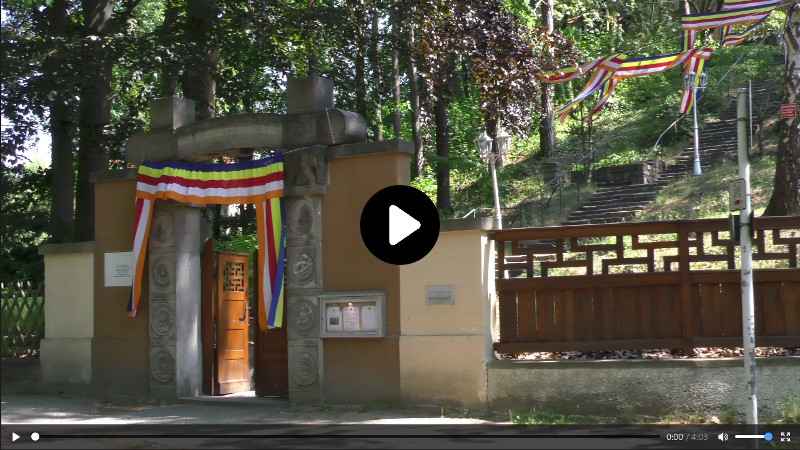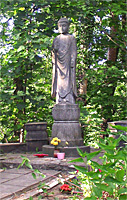Welcome!
Should you have any queries, please send us an Email or kindly visit us at the Vihara in Frohnau.
The currently resident monks living in
Das Buddhistische Haus
In Library & Temple
April 14, 2024
see celebrations
Lecture ![]()
April 21, 2024
Bhante Thalpawila Kusalagnana Thero
Experiences of enlightened monks and nuns
Lecture ![]()
April 28, 2024
Rodrigo Gonzales
Dissolve the mental obstacles
April 14, 2024
Sri Lankan New Year
May 26, 2024
Vesakh Celebration
June 23, 2024
Poson Celebration
July 02, 2024
Memorial ceremony for Asoka Weeraratna
July 21, 2024
Vas Ceremony and Pirith Chanting
August 03 +04, 2024
100th Anniversary of
Das Buddhistische Haus
October 19 + 20, 2024
Kathina Celebration
December 31, 2024
New Year's Pirith Chanting and meditation program with the monks
-
Day of Mindfulness ~ One-day silent retreat ~ December '24
Day of Mindfulness One-day silent retreat Sat. 07.12.2024 von 10:00am – 4:00pm ~ Unplug and immerse yourself in silence for a day and perceive the inner world with... -
Day of Mindfulness ~ One-day silent retreat ~ December '24
Day of Mindfulness One-day silent retreat Sat. 07.12.2024 von 10:00am – 4:00pm ~ Unplug and immerse yourself in silence for a day and perceive the inner world with...
Featured speeches
- Audio: "Nibbana without the notion of I"

von Tissa Weeraratna - Video: Awaken person and commen person
 &
& 
by Tissa Weeraratna - Audio: Talk Ethics and Friendship
 &
& 
by Tissa Weeraratna
- Audio: Talk "Dhamma & Buddhism"
 &
& 
by Tissa Weeraratna - Audio: Talk "Balanced Mind"
Part 1-3 &
& 
by Tissa Weeraratna - Video: Speech on Vesakh 2017
 &
& 
by Tissa Weeraratna
_________________
60 years German Dharmaduta Society - An article by Janaka Perera
________
What we do, everybody can see it.
What we talk, everybody can hear it.
What we think, everybody can know it.
The Assurance of Free Inquiry
Throughout his teachings of the Dhamma (the Law of Nature) for forty-five years, the Buddha laid emphasis on analytical investigation, freedom of thought and the value of dissent. For the first time in human history we see a teacher i.e. the Buddha, calling on his listeners to think freely, without being bound by unverifiable propositions, solely due to the reason that they had been passed down from generation to generation. The Buddha taught his followers to use their critical faculty in defining what is good and wholesome. In one discourse, the Kalama Sutta (considered as the ''''Magna Carta'''' of Buddhism by some scholars) the Buddha draws attention to some fundamental rights and privileges for the seeker after the truth.
Do not believe in anything (simply) because you have heard it.
Do not believe in traditions because they have been handed down for many generations.
Do not believe in anything because it is spoken and rumoured by many.
Do not believe in anything (simply) because it is found written in your religious books.
Do not believe in anything merely on the authority of your teachers and elders.
''These things are profitable; these things are not profitable; these things are praised by ..the wise and cultivated by the wise, then accept and practise only what leads to welfare ..and happiness of both yourself and others.''
The entry request to the promotion association is in german language on-line available.
Beitrittsantrag ![]() for Förderverein: Formular
for Förderverein: Formular ![]()





